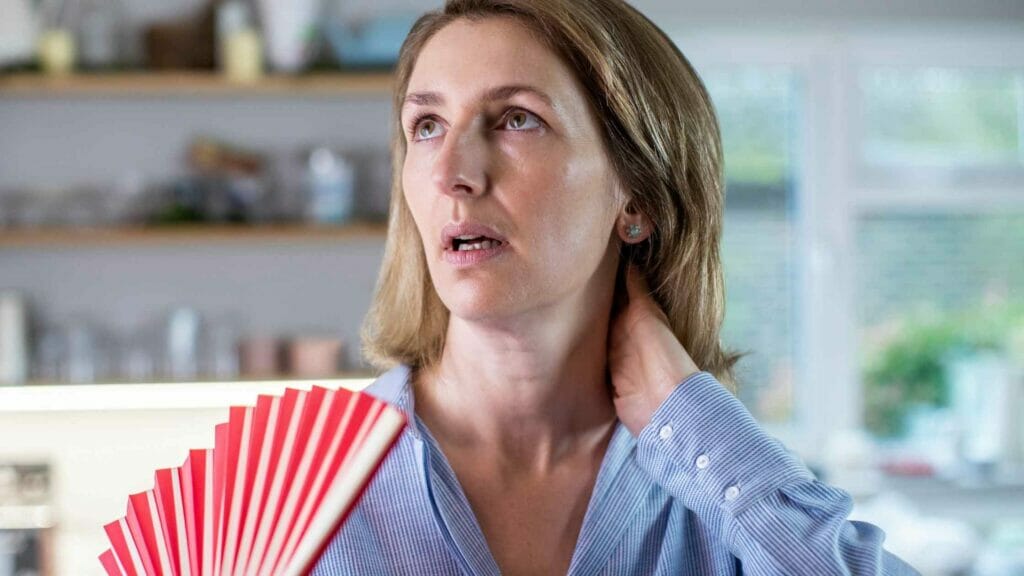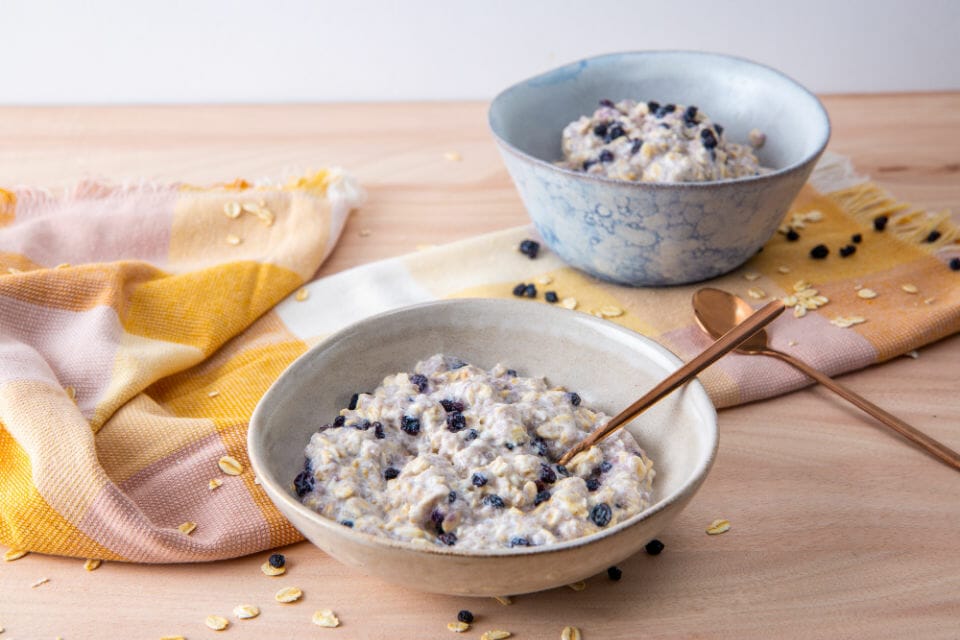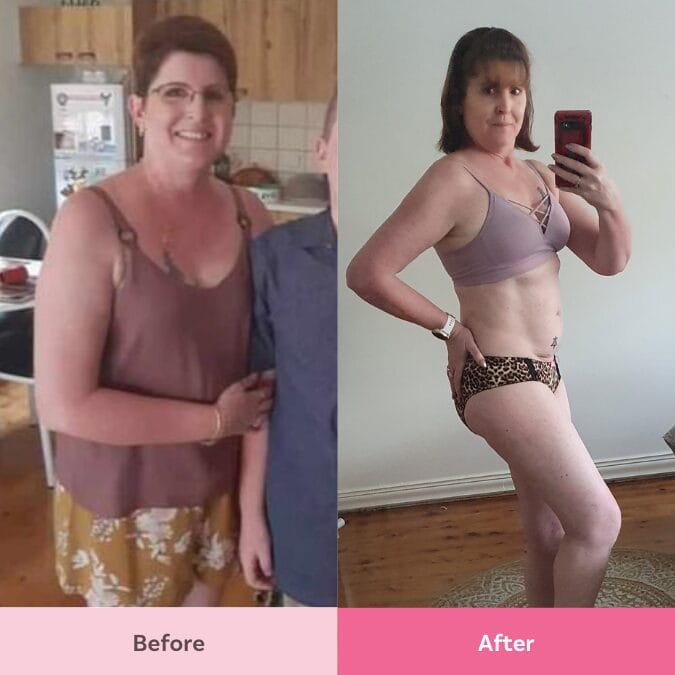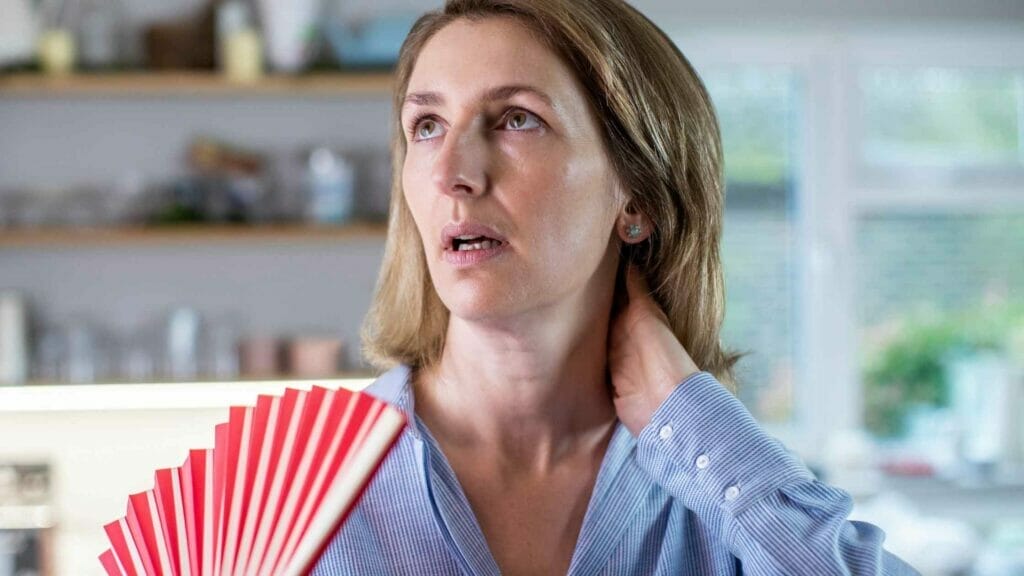Menopause: Age, stages, signs, symptoms & treatment
Menopause is the period when a woman stops menstruation and usually starts in midlife with perimenopause. Find out how to handle this change.
In a nutshell, menopause occurs when a woman hasn’t menstruated in 12 consecutive months and can no longer become pregnant naturally. But there’s more to it than that.
The most common time of menopause for women is, on average, around 51 years old, and symptoms usually occur four years before their last period.
You might’ve heard of the term perimenopause. This is the transitional time before menopause and usually occurs eight years before menopause -but can occur from the mid-30s.
For some women, this phase only lasts a short time; however, it can last four to eight years for others. Once you transition into natural menopause, it can last for a few decades then you move into a post-menopausal period.
What is menopause?

Menopause is the time in a woman’s life when her menstrual cycle stops and her ovaries are no longer making and releasing eggs. It’s essentially the end of a woman’s reproductive stage of life. You’ll be officially in menopause if you’ve gone 12 months without having your period. This is without the interference of birth control as some women stop their period using contraception.
Most Australian women experience menopause starting from their 40s and going until their 60s, with the average age of menopausal women being 51. Some women experience early menopause due to health conditions or other concerns. Some of the health conditions that can trigger premature menopause include
- Primary ovarian insufficiency – Where ovaries stop working usually due to specific genetic, autoimmune or metabolic conditions
- Medical treatments such as chemo or radiation – These medical treatments will stop your ovaries from functioning.
- Preventative surgery. – An oophorectomy (removal of ovaries) or hysterectomy (removal of the uterus) are used to help prevent breast cancer or ovarian cancer. They can also ease issues like PCOS or endometriosis and stop further pregnancies.
- Unknown – Some women, 6 in 10, develop early menopause without a known reason.
Every woman’s experience of menopause is different, some women only suffer minor discomfort whilst others have more severe symptoms. Most menopause symptoms may be temporary but can last for years.
Symptoms of menopause
The most common symptoms experienced included period changes, sleeping problems, hot flushes, anxiety, weight gain, low mood and night sweats, with women typically experiencing a combination of five symptoms during the early stages.

Do I have perimenopause?
Many women start the transition to menopause in their early 40s or during midlife, and this is called perimenopause. Some women may experience it for only a few months, but for others, it can start as early as the mid-30s.
Women can experience a range of symptoms during perimenopause. The most common symptoms include:
- Hot flashes.
- Changes in mood and libido.
- Vaginal dryness and more painful intercourse, as well as anxiety and depression.
Treatment options for menopause

Menopausal hormone therapy (MHT, also known as hormone replacement therapy HRT), is the most commonly prescribed treatment.
Hormone therapy can help to relieve symptoms by replacing oestrogen levels that fall naturally during menopause. These treatments work to manage the female hormone levels in your body to help ease any of the symptoms that changes in these hormone levels cause.
Sometimes, MHT or HRT may not be recommended as a treatment option by your healthcare provider. These include:
- A history of oestrogen-dependent cancer, such as breast cancer or uterine cancer.
- Undiagnosed vaginal bleeding.
- Untreated thickening of the uterine lining.
- Unmanaged blood pressure issues.
- Any medical conditions that increase your risk of blood clots.
- A range of other medical conditions you should discuss with your healthcare provider.
Other non-hormonal treatments can be discussed with the GP. This includes changing lifestyle factors such as improvements in diet, regular physical activity, optimal weight management, and quitting smoking. Be sure to speak to your GP about complementary treatment options, including hydrotherapy, mindfulness, acupuncture, etc.

What’s post-menopause?
Post-menopause is the time after your menopausal symptoms such as hot flashes or mood swings ease. Some women may experience menopausal symptoms for a decade or more after the menopause transition, but not all. Women’s health in this period is critical because there are several health conditions they may be at higher risk of. During this post-menopausal period, your estrogen levels will be lower, putting you at an increased risk for osteoporosis and heart disease.
How can you help support your mood during menopause?

Ensuring you maintain all relevant healthcare during menopause is key to helping to support your hormone levels. A ‘roll call’ of the most essential nutrients for mood, intelligence and memory through menopause includes a long list of vitamins and minerals, often available as supplements if needed. These can all help support hormone changes that come with premature menopause, Perimenopause and natural menopause.
- Vitamin B1 (thiamine) modulates cognitive performance, especially as we age.
- Vitamins B1, B2 (riboflavin), B3 (niacin), and B9 (folate) improve the level of abstract thought.
- B5 (pantothenic acid) causes fatigue when it’s low.
- B6 (pyridoxine) is helpful for depression linked to fluctuating women’s hormones. B6 is involved in making the brain chemicals (neurotransmitters) needed to experience happiness, joy, motivation and calmness. Low B6 levels can cause insomnia, irritability, and depression. Plus, B6 helps to alleviate bloating and water retention.
- Vitamin B9 (folate) preserves memory during ageing.
- Vitamin B12 is involved in the production of brain chemicals needed for calm moods and happiness. B12 improves cerebral and cognitive functions in the elderly.
- Vitamins B6, B12, A, and E have been found to create better visuospatial memory and improve abstraction test results.
- Vitamin C is crucial for women approaching menopause. Physical and emotional stress greatly increases the need for vitamin C because stress triggers the hormone adrenaline (also made in the adrenals), which is vitamin C dependent. Prolonged stress can deplete vitamin C, which impacts the immune system, health and wellness.
- Low Vitamin D levels have been linked to an increased risk of depression and joint pain.
- Vitamin E is best known for its role as an antioxidant. It may have a role in reducing symptoms of menopause, such as hot flushes.
- Iron is necessary to produce energy in brain cells and produce neurotransmitters. Low iron levels are unfortunately very common in women and linked to apathy, depression and rapid fatigue when exercising!
- Magnesium supports muscle relaxation and helps prevent insomnia.
- Calcium is not just necessary for bone health and bone density. It also supports mental health linked to improved sleep and mood, especially regarding women’s hormones.
- Iodine is needed for brain cells to produce energy.
Always seek medical advice from your healthcare provider before beginning any supplements, especially if you’re also looking at other treatment options.
How eating a healthy diet can help improve the symptoms of menopause.

Depression, insomnia, anxiety and general sadness should be addressed with your GP, a psychologist or counsellor. Eating a balanced diet that specifically addresses the symptoms of menopause is paramount.
Making lifestyle changes can help support other treatment options you may be looking at to support your journey with menopause.
Include these foods in your healthy diet:
Chia seeds are a source of omega-3s, which reduce depression and anxiety.
Oatmeal, which is slow burning, will keep you running all morning and prevent you from crashing and feeling fatigued and hungry.
Kefir has been shown to assist with anxiety and decrease depression. It is rich in tryptophan, which aids with sleep.
Tart cherry juice contains tryptophan, which helps the body produce melatonin. A good amount of melatonin, the sleep hormone, will help the body transition to sleep and deal with any sleep problems. Studies suggest that consuming tart cherry juice leads to better and longer sleep.
Dark leafy greens are high in magnesium, which is a great mineral to assist with heartbeat regulation and sleep. Fresh vegetables contain plenty of antioxidants that protect our cells from damage due to free radicals and can help maintain a healthy weight.
Fatty fish contain fatty acids, which can help regulate blood pressure, which in turn can help to control hot flushes. Fatty fish are also high in vitamin D, which is helpful for bone health and mood.
According to ancient Chinese medicine, apples, spinach, broccoli, eggs, and green tea are cooling foods that can help cool you down.

Beyond including these foods in your diet, other lifestyle changes you can make to help support your health during menopause include:
- Avoid caffeine, alcohol and spicy foods to help ease hot flushes.
- Keep yourself cool using a fan or air conditioning where possible.
- Use layered clothing to help you get through those hot flushes that hit fast. You can take a layer off if you get hot.
- Regular exercise will not only help you stay healthy but can help with those mood swings since exercise helps boost your mood.
Recipes to help alleviate menopause symptoms
Try these two recipes from the Wellness App to help alleviate menopause symptoms.
Turmeric Cauliflower with Grilled Salmon

Blackcurrant, Oats & Chia Seeds

Get access to hormone balancing recipes, gentle Yoga, and meditations in our 3 day menopause program
Our three-day plan will help you smooth the hormone fluctuations; so you can feel calm, confident and comfortable in your body.
Our comprehensive 3 day program, will provide you with:
- Meal plans using natural ingredients with hormone balancing properties, including recipes for 3 main meals & 3 healthy snacks per day
- Guided breath-work programs designed to improve oxygen to the brain to counter stress and brain fog, so you’ll feel calmer and clearer
- Guided Yoga, Pilates & Meditations to improve energy, digestion, Pelvic floor and symptoms of PMS
- Podcasts and info-blogs from psychologists, nutritionists and our expert Wellness Team helping you to understand menopause and how to manage it smoothly
- Easy to follow 3 day program guides you on when to take each step to make things super simple and effective
- Everything at your finger tips you can easily access the program from your Healthy Mummy account on your smart device









